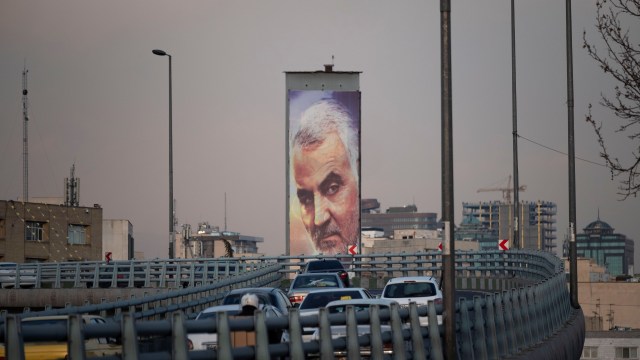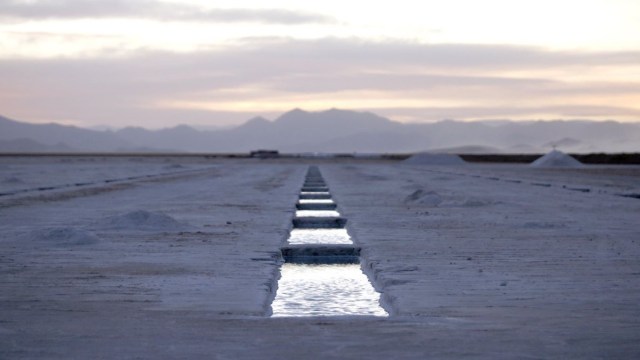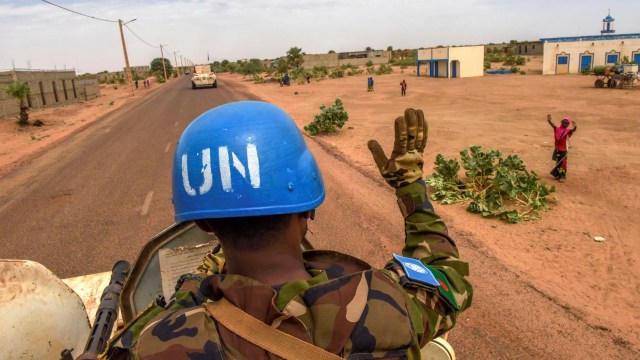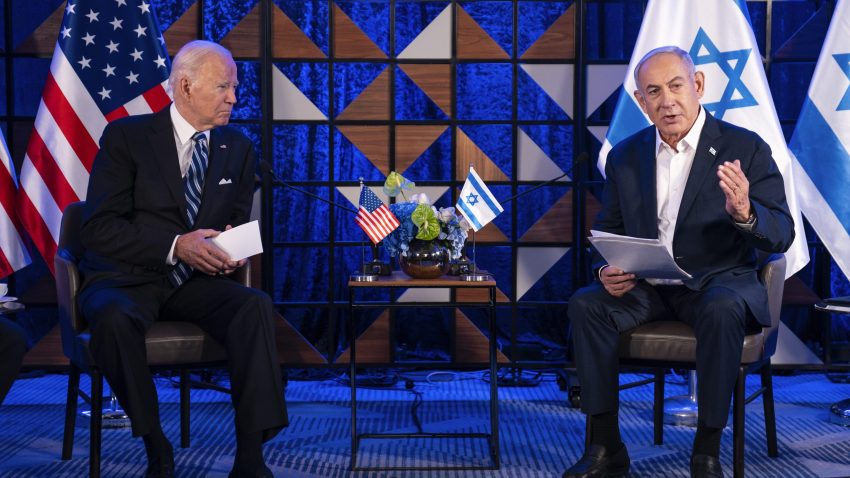Today at WPR, we’re covering a shift toward militant nationalism in Iran and Saudi Arabia, as well as how Argentina’s lithium boom could help the U.S. green transition.
But first, here’s our take on today’s top story.
Israel-Gaza: President Joe Biden landed in Israel today, a day after a deadly explosion at a hospital in the Gaza Strip, which the territory’s Health Ministry said killed nearly 500 people. Palestinian officials blamed an Israeli airstrike for the explosion, while Israel blamed a misfired rocket by an armed Palestinian faction. (New York Times)
Our Take: The explosion at Ahli Arab Hospital has completely gripped international attention since yesterday, accentuating the sheer carnage generated in less than two weeks of the Israel-Hamas war. The human costs of the fighting so far underscore how destructively shortsighted the international community’s disregard of the Israeli-Palestinian conflict for the past few years has been.
Responsibility for the explosion has still not been definitively established. But while the attempts to do so are vitally important from a legal and historical perspective, they are in many ways politically irrelevant. Even a definitive attribution will in all likelihood be contested by the side that is blamed. More importantly, it will not change the conclusions that supporters of the two sides have already drawn from the explosion. For supporters of the Palestinian cause, it provides further confirmation of Israel’s gross violations of international law in its attacks on Gaza; for supporters of Israel, it underscores the utter disregard shown by Hamas and other Palestinian factions for Gaza’s civilian population.
The explosion has also fueled another round of popular demonstrations of support for the Palestinian cause across the Middle East and beyond, raising the pressure on regional governments to take a tougher stance on the conflict, which some have already done. And Jordan canceled a scheduled meeting between King Abdullah II and Biden that would have also included the leaders of Egypt and the Palestinian Authority, signaling the political risks Biden took on when he decided to visit Israel.
For much of the Global South, the attack also highlighted the hypocrisy of the West, which for months has pressured governments to condemn Russian attacks causing civilian casualties in Ukraine but has continued to express its solidarity with Israel despite the civilian death toll in Gaza.
Looking ahead, the explosion at Ahli Arab Hospital also underscores how the unforeseen and unintended consequences of war can lead to cascading escalations and expansions. This tragedy took place in Gaza; its fallout is unlikely to stay there.


Militant Nationalism Is Reshaping Identity in Iran and Saudi Arabia
While global leaders and publics remain transfixed by the unfolding tragedy in Gaza amid the Israel-Hamas war, other trends in the region whose long-term impact could prove as consequential for the future of the Middle East are gaining momentum.
In particular, an increasingly visible transformation of identity discourses across the Persian Gulf is setting the scene for further shocks to the regional order. As columnist Alexander Clarkson writes, the authoritarian governments of Iran and Saudi Arabia, in particular, have shifted toward forms of militarized nationalism in order to avoid direct challenges to their power.
The U.S. Needs Argentina’s Lithium. The IRA’s Getting in the Way
Flaws in last year’s groundbreaking Inflation Reduction Act, designed to speed the U.S. energy transition, could end up slowing the adoption of electric vehicles, or EVs. In particular, the batteries of EVs will require vast quantities of minerals, including copper and lithium.

That shouldn’t be a problem. After all, U.S. neighbors in Latin America are among the leading producers of these minerals. For instance, Argentina’s lithium sector is growing explosively.
But as Benjamin N. Gedan and Andrew Sady-Kennedy write, the IRA’s tax incentives for EVs exclude major potential suppliers of critical minerals, including Argentina.

We want to hear your take on the issues we cover. We’ll select one person from those who answer the question below to receive a free one-month extension of their WPR subscription.
This week’s question: U.S. President Joe Biden has continued to express full solidarity with Israel, even appearing to side with the Israeli Defense Forces’ account of the hospital explosion, while also limiting public calls for Israel to show restraint in Gaza. In the aftermath of the explosion, should Biden have visited Israel?

U.N. peacekeepers began departing from two bases in northern Mali as part of a forced withdrawal by the country’s ruling military junta and amid a rise in attacks by Islamist extremists in the region.
The junta has ordered the peacekeeping mission, which began operations in 2013, to leave the country by the end of the year. As Richard Gowan wrote in July, the end of the mission in many ways also marks the end of an era in peacekeeping, but the U.N. will likely find new ways to support peace elsewhere.

U.N. Peacekeeping Still Has a Future After Mali
July 11, 2023 | Mali’s expulsion of MINUSMA could presage the end of an era, but not the end of U.N. peacekeeping missions. Read more.
Armed rebels killed at least seven people at a gold mine in Papua, a region on the Indonesian half of the island of New Guinea. The West Papua National Liberation Army, which has waged a low-level guerrilla war for independence in the region, took responsibility for the attack.
As Nithin Coca wrote last year, the Indonesian government has for decades sought to cement its control over Papua and West Papua by doubling down on a securitized approach to dissent. So far, its strategies have only increased tensions.
Indonesia’s Heavy-Handed Approach in West Papua Is Backfiring
Jan. 4, 2022 | The Indonesian government has doubled down on a securitized approach to dissent in West Papua. So far, it has only increased tensions. Read more.

Tunisian President Kais Saied sacked the country’s economy minister after he made remarks in favor of a deal with the IMF. Read Francisco Serrano’s briefing from last week on the country’s political and economic crisis.
More From WPR
- Shahryar Pasandideh on Iran’s missile and drone systems.
- Jonathan Fenton-Harvey on Syria’s reconstruction.
- Mary Gallagher on the U.S. and China’s science and tech decoupling.
- James Bosworth on Guatemala’s democratic transition.

